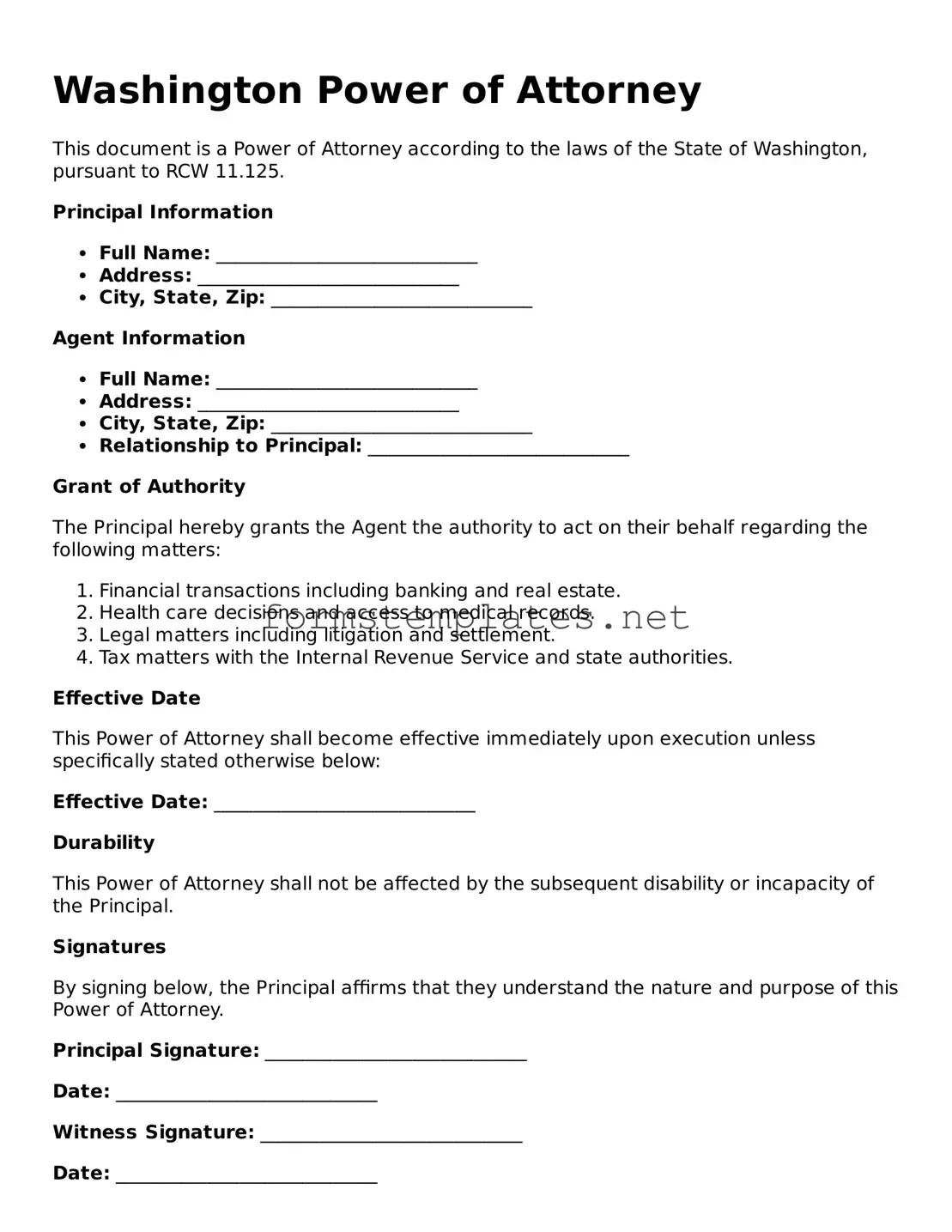Attorney-Approved Washington Power of Attorney Template
A Washington Power of Attorney form is a legal document that allows an individual, known as the principal, to appoint someone else, called the agent, to make decisions on their behalf. This form can cover a variety of decisions, including financial and healthcare matters, and it provides a way for individuals to ensure their wishes are respected when they are unable to communicate them. Understanding how to properly use this form is essential for anyone considering delegating authority to another person.
Open Editor Now

Attorney-Approved Washington Power of Attorney Template
Open Editor Now

Open Editor Now
or
⇓ PDF Form
Your form still needs attention
Finalize Power of Attorney online — simple edits, saving, and download.